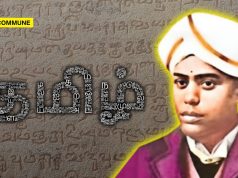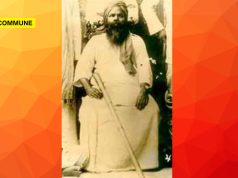
Very few Indians today remember Radhabinod Pal. That too, they might of heard of him after the Irfan Khan starrer Tokyo Trial released in 2016. During a visit to India in 2007, Japanese Prime Minister Shinzo Abe paid tribute to Pal in his speech in Parliament. Who is this Radhabinod Pal celebrated by Japan?
Early Life
Radhabinod Pal was born in the small village of Salimpur in the Kushtia District of Bengal in 1886. He started working as a Lecturer in Mathematics at Ananda Mohan College, Mymensingh, after receiving his MA (1908) in Mathematics from the Presidency College, Calcutta. Alongside his teaching, Pal obtained an LLM degree from Calcutta University. Pal was a key figure in the creation of the Indian Income Tax Act of 1922. Recognizing Pal’s legal acumen, the British government hired him as a legal counsel in 1927. Pal was appointed as Judge to the Calcutta High Court in 1941. He was asked to represent India on the tribunal of Judges presiding over the Tokyo Trials in 1946 to try Japanese leaders for “war crimes” in World War II.
Tokyo Trial
Radhabinod Pal’s nomination was seen as a symbolic gesture to increase South Asian representation on the bench. But Pal refused to be the token Indian on the bench. There was hardly any doubt in anyone’s mind about what the result of the judgement would be. It is an unwritten law that history will be written by those who win in war. This tribunal established by the Allied powers after winning World War II was no exception.
The 25 accused were found guilty by the Tribunal. Seven were sentenced to death, 16 to life imprisonment, and two were sentenced to 20 years and seven years in jail, respectively. But Pal was the only dissenting judge who absolved all the arrested suspects from all charges. Not only did his dissenting opinion enrage his colleagues, but it also enraged the Allied power regimes.
His simple argument was that the tribunal could not apply the charges, crimes against peace, and crimes against humanity, with retrospective effect. There were no such crimes listed under international law when Japan had gone to war, so Japan could hardly have broken any law. Pal concluded that the indictments themselves were invalid.
In his convincing argument to the rest of the jurists, he signified that the Allies violated the principles of restraint and neutrality of international law. In addition to ignoring Japan’s surrender hints, Allied powers killed two hundred thousand innocent people using nuclear bombardment, he added in his judgement.
Influenced by the logic of Pal’s dissenting judgement, French and Dutch Judges submitted separate dissenting notes, though agreeing with the majority judgement of finding the defendants guilty.
His Legacy
Japan respects this great legal luminary more than India did. Pal received the Order of the Sacred Treasure First Class from the Emperor of Japan in 1966, which is one of the country’s highest honours. He is also honoured with a memorial at Tokyo’s Yasukuni shrine, which honours Japanese war veterans. Two busy roads in Tokyo and Kyoto have been named after him. His verdict has been included in the syllabus of law studies there. His statue has been placed in front of Japan’s Supreme court.
When the entire war crime was blamed on the Axis powers, Radhabinod Pal was the only one brave enough to point out the Allied Powers’ faults. Many Japanese historians even now cite his judgment to prove that Japan was not the only perpetrator of World War II crimes.
Radhabinod Pal is the author of a number of legal books. In India, almost nobody knows him. It has been 70 years since the Tokyo trial ended. It may be a good time to remember this brave and patriotic man.
Click here to subscribe to The Commune on Telegram and get the best stories of the day delivered to you personally.




